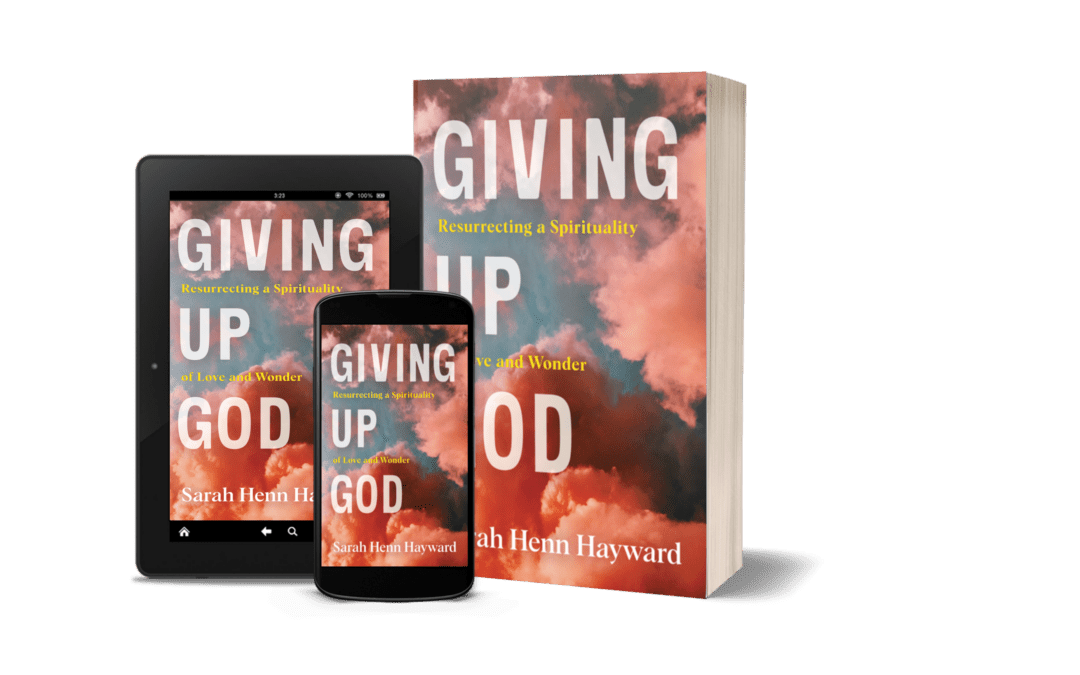Friends of Lake Drive Books,
When it comes to religion and spirituality, one of the things I think about a lot is the question of whether we need to believe in a theistic, supernatural being to be spiritual beings ourselves.
The idea that religion, above all, means belief (in contrast to rituals, ethics and relationships, service, etc.) is so baked into our frameworks, that no one really wants to talk about the implied big question where John Shelby Spong says, “When you go to church, you shouldn’t have to check your brain at the door.”
In fact, there are religions and spiritual communities in the world where belief just doesn’t work the same way. Just go read a standard survey book on world religions.
“Christianity that requires belief in a supernatural god” as a pastor friend I know says, “isn’t the only option on the table.” How refreshing it was to hear that recently, and yet so many of us just can’t see Christianity in this way. Our understanding and practice of religion is so extraordinarily embedded with theism, that moving on from theism means also moving on from Christianity.
Oh maybe we can find a time when we can see the rituals, doctrines, and sacred narratives of Christianity as valuable without theism, but that time isn’t necessarily now. There’s just too much reckoning that needs to happen.
As a result, so many of us, like Sarah Henn Hayward says in the video below, are making a choice to say we are no longer Christian. Those of us who do so aren’t just a small minority who will eventually find our way back (“to what?” you might say), as though we are lost forever. Our numbers are large and growing, and we aren’t lost (though it often feels that way). We are finding something good that Christian identity can’t seem to encompass, even if maybe someday it will. In this sense, we’re not the ones who are lost, possibly forever. Christianity is.
No one wants to talk about this. We don’t naturally like to be honest with ourselves. To ask us to examine something that seems so core to our religious identity just seems absurd, even if we’re being disingenuous. And trust me, in my part-time experience as a PhD in the psychology of religion, self-examination of one’s religious identity is elusive.
But you see, if you do examine your religion carefully, find it not living up to its own standards, and decide to head out in new directions, then so much goodness becomes clear. It’s really there. People are finding it. I won’t say why or how or what, as that’s Sarah’s job in this book.
And friend, if this book or topic makes you feel a little uncomfortable, I just want to say that everything will be okay. Perhaps examine your discomfort, read Sarah’s book, and respectfully engage with her on her newsletter or Instagram or Facebook, and get into a healthy, safe dialog.
NakedPastor David Hayward says: “What stands out the most . . . is [Sarah’s] courage to put everything at risk and ask the hard questions.”
The journey of faith deconstruction is not without grief, but with profound wisdom, Sarah Hayward holds fast to a forthright, inspirational honesty that shines on every page. Giving Up God: Resurrecting a Spirituality of Love and Wonder offers a narrative that gives us permission to let go of the past and our fear about the future, and instead train our attention on love and wonder in our present life and resurrect a peace deeper than we ever thought possible.
Head over here to learn more and order a copy of Giving Up God today.
So grateful for you,
David Morris, Publisher


